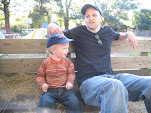Bolger is not so sure that being a revisionist is so bad. (Actually, he doesn't like the term revisionist, so he uses a self-theologizing, which is pretty different). Here's what he writes:
In the nineteenth century, Rufus Anderson and Henry Venn contributed a new idea to missiology -- that of the three-self formula. They advocated that a new church work or mission, if it is to become indigenous, must be self-supporting, self-propagating, and self-governing. My colleague, Charles Van Engen, mission theologian (and former President of the Reformed Church of America), advocates a fourth 'self' -- self-theologizing. Why his addition to the formula?
A new community must be self-theologizing or it will become nominal. Self-theologizing, how? To become an indigenous expression of faith, a community must form its life around scripture, engaging their culture within a praxis-reflection orientation. In other words, the community goes deep into the word in order to answer the questions of their culture. They 'practice' those answers in the world, and then reflect biblically again. Instead of self-theologizing, however, what frequently happens is that new faith communities are given a theology that answers nineteenth-century questions, or sixteenth-century questions, or fifth-century questions. These historical works will undoubtedly be helpful, but they will inevitably leave some questions unanswered. Each context presents its own issues. If the deep questions of a culture go unanswered, then Christians will seek answers elsewhere, without reference to scripture, thus inviting in nominality.
What Stetzman and Putman call revisionist I see as self-theologizing: reading scripture in light of a culture's questions. These emerging "self-theologians" copy the example of historical theologians engaging their particular culture) but they do not necessarily copy their responses.

1 comment:
Yes, I mean I don't think any of us can help but self-theologize all the time. Everyone has theology whether they acknowledge it or not and its always evolving as people experience, reflect, and interpret the scriptures. And in this global age its getting input from a dazzling array of directions, for good and bad. I guess to not be self-theologizing as an individual or group, you'd basically have to be dead or on critical life-support (spiritually speaking.)
But you know, come to think of it, even in the most hyper-conservative, Bible-thumping, suppressed church environments, people still seem to do their own wild and woolly self-theologizing that doesn't necessarily line up with any denom statement or statement held by church leadership. People often probably don't even realize how divergent their views are from their leadership or denom. Its probably because communication is so one-way in these fellowship structures.
Post a Comment